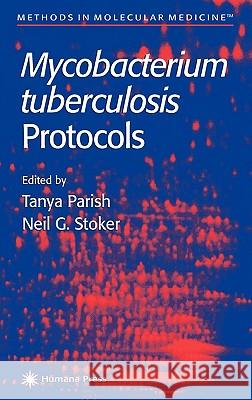Mycobacterium Tuberculosis Protocols » książka
Mycobacterium Tuberculosis Protocols
ISBN-13: 9780896037762 / Angielski / Twarda / 2001 / 406 str.
The aim of this book is to provide detailed protocols for studying the molecular biology of the pathogen Mycobacterium tuberculosis, and its int- actions with host cells. As established mycobacterial laboratories move - wards exploiting the genome, and laboratories with expertise in other fields apply them to mycobacteria, both traditional and novel methodologies need to be reviewed. Thus the chapters in Mycobacterium tuberculosis Protocols range from perspectives on storage of strains and safety issues to the application of the latest functional genomics technologies. The last few years have been remarkable ones for research into M. tuber- losis. The most important landmark by far has been the completion of the genome sequence of the widely studied H37Rv strain (1). We can now predict every protein and RNA molecule made by the pathogen. This information is or will soon be enriched by the addition of genome sequences of other strains from the M. tuberculosis complex: a second strain of M. tuberculosis, My- bacterium bovis, and the vaccine strain, M. bovis BCG. Valuable comparative data will also be provided by the genome sequences of Mycobacterium leprae, Mycobacterium avium, and Streptomyces coelicolor. Another recent milestone for M. tuberculosis has been the development of efficient mutagenesis me- odologies, the lack of which has been a major handicap in functional studies.











